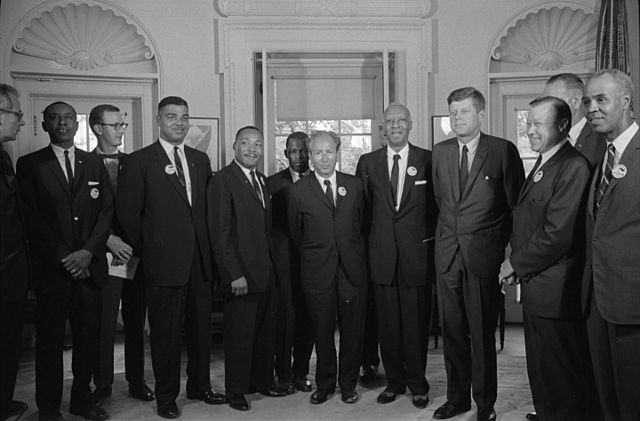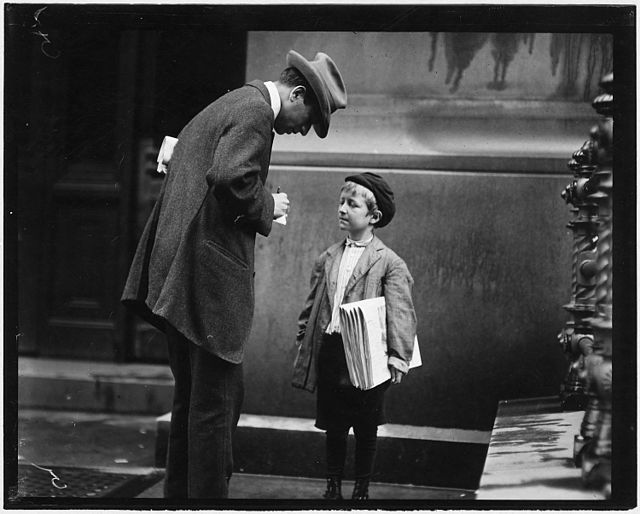The Civil Rights Act of 1964 is a landmark civil rights and labor law in the United States that outlaws discrimination based on race, color, religion, sex, and national origin. It prohibits unequal application of voter registration requirements, racial segregation in schools and public accommodations, and employment discrimination. The act "remains one of the most significant legislative achievements in American history".
United States President John F. Kennedy addresses the nation on civil rights on June 11, 1963
Following the March on Washington on August 28, 1963, civil rights leaders met with President Kennedy and Vice President Johnson to discuss civil rights legislation.
Martin Luther King Jr. and Malcolm X at the United States Capitol on March 26, 1964, listening to the Senate debate on the bill. The two met for only one minute.
United States President Lyndon B. Johnson signs the Civil Rights Act of 1964. Among the guests behind him is Martin Luther King Jr.
United States labor law sets the rights and duties for employees, labor unions, and employers in the US. Labor law's basic aim is to remedy the "inequality of bargaining power" between employees and employers, especially employers "organized in the corporate or other forms of ownership association". Over the 20th century, federal law created minimum social and economic rights, and encouraged state laws to go beyond the minimum to favor employees. The Fair Labor Standards Act of 1938 requires a federal minimum wage, currently $7.25 but higher in 29 states and D.C., and discourages working weeks over 40 hours through time-and-a-half overtime pay. There are no federal laws, and few state laws, requiring paid holidays or paid family leave. The Family and Medical Leave Act of 1993 creates a limited right to 12 weeks of unpaid leave in larger employers. There is no automatic right to an occupational pension beyond federally guaranteed Social Security, but the Employee Retirement Income Security Act of 1974 requires standards of prudent management and good governance if employers agree to provide pensions, health plans or other benefits. The Occupational Safety and Health Act of 1970 requires employees have a safe system of work.

Eleanor Roosevelt believed the Universal Declaration of Human Rights of 1948 "may well become the international Magna Carta of all". Based on the President's call for a Second Bill of Rights in 1944, articles 22–24 elevated rights to "social security", "just and favourable conditions of work", and the "right to rest and leisure" to be as important as the "right to own property".
"Newsboys" in L.A. were held in the leading case, NLRB v. Hearst Publications, Inc., to be employees with labor rights, not independent contractors, on account of their unequal bargaining power.
In September 2015, the California Labor and Workforce Development Agency held that Uber drivers are controlled and sanctioned by the company and are therefore not self-employed.
Employment contracts are subject to minimum rights in state and federal statute, and those created by collective agreements.








